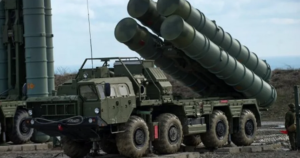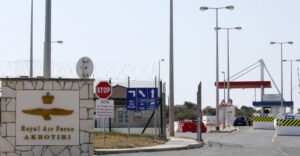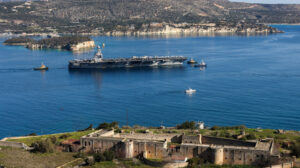One of the hottest issues in the 50-minute discussion between Turkish President Recep Tayyip Erdoğan and U.S. President Joe Biden during the NATO summit of June 14 was NATO member Turkey’s acquisition of the Russian-made S-400 long-range air defense system and subsequent U.S. sanctions, including expelling Turkey from the U.S.-led multinational consortium that builds the F-35 fifth-generation fighter jet. Unsurprisingly, the meeting ended without a solution. That is bad news for the Turkish Air Force (TuAF).
For more than a decade, Turkey’s military top brass planned future air power capabilities based on the assumption that they would be receiving at least 100 F-35s starting in the 2020s. The TuAF operates squadrons of fourth-generation U.S.-built F-16s and older F-4s in its operations against separatist Kurdish militants in Turkey’s southeast as well as in northern Iraq and Syria. Turkey first began acquiring the F-16s from the U.S. in late 1980s and has locally produced the iconic fighter jet under license, being one of the five countries to locally produce the aircraft. Today, TuAF has a total of 270 F-16C/D aircraft in its inventory, all of them Block 30/40/50 models. Most of those aircraft will have to be phased out within the next 10 to 15 years, depending on their upgrades. Whether Congress will allow the sale of fighter jet parts and servicing for upgrades is another question mark.
What are Turkey’s options to minimize the inevitable decay in TuAF’s deterrence? Not too many. Turkey is still blackmailing the U.S. (and NATO allies) that it may opt for a Russian fighter jet, the Su-57, for instance, in case it feels threatened by the lack of a new generation fighter aircraft. This is bluffing. TuAF generals know too well that switching from NATO-standard aircraft to Russian ones after 70 years is not like changing your American car in favor of a Japanese one. Building a new operational structure, modifying air bases, new repair, service and maintenance systems will be too costly, time consuming and technologically difficult.
Huge explosion shakes Dubai: Cargo ship exploded in Jebel Ali port (videos)
In theory, Turkey is proud of its own indigenous fighter jet program, the TF-X. Tusaş Turkish Aerospace Industries (TAI) has for years been running the TF-X program. Turkey’s defense and aerospace authorities have been announcing “breaking news” almost daily to update the public on the TF-X. Most recently, TAI announced that it started to build Europe’s second biggest supersonic wind tunnel for future tests of the TF-X. The company said it signed a deal with a Turkish university for the Turkish fighter jet’s software system. TAI has also unveiled the TF-X’s mock-up.
Read more: Gatestone Institute
Ask me anything
Explore related questions





